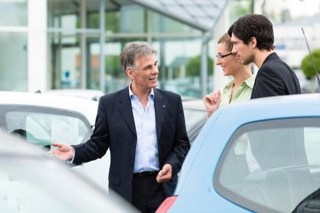Dealers must relinquish control of the sales process to their customers and accept a new role if they are to survive in the digital age, automotive industry experts have warned.
Retailers in other sectors such as Apple, as well as generalist online retailers like Amazon, are forging ahead in how they sell to customers, but the motor industry is lagging behind, a panel assembled to discuss the challenges facing the motor industry at an‘automotive leaders’ event organised by automotive ecommerce expert Summit.
And, while the majority of the panel agreed there will always be a role for the physical dealership, it is a shifting role that automotive businesses must embrace quickly if they are to remain relevant.
The panel comprised Haymarket Automotive editorial director Jim Holder, Auto Trader market research and insight director Nick King, James Davies of location technology firm GroundTruth, Hugh Williams of market and advertising data company Exchange Wire, and Tony Patterson (pictured), director of automotive at Summit.
Making the process of buying a car easier, limiting the amount of choice available and understanding exactly where customers are in the purchase journey are all key adjustments that the industry – and dealers in particular – must make, according to the panel.
“Car buyers no longer need a salesman at a dealer,” said Holder.
“They need a customer service agent because the chances are they’ve done their research and they already know what they want to buy; they don’t need or want to be sold to. Traditionally, the dealer and, to some extent the OEMs, have held the control in the sales process but now that control lies with the consumer.”
More than half of car buyers report the most frustrating thing about the process is the level of choice they have to wade through and 62% also claim that having to deal with forecourt staff is “a pain”.
Meanwhile, Summit’s own research reveals that nearly two in five (39%) consumers would consider buying a car more often if the process was easier.
Consumers are also arriving at the active purchase point far more informed than ever before, thanks to the increase in online reviews, forums and social media channels, further altering the role of the sales executive.
The panel agreed that dealers now need to be empathetic and understand at the first point of contact where the customer is in the purchase journey, citing Apple stores as a good illustration of how to process customers differently, depending on whether or not they already know what they want.
As online car sales become increasingly commonplace, manufacturers and dealers must also balance the offline and online customer experience by enhancing integration between the data collected by ecommerce sites and the franchised dealer network.
With the consumer’s research and purchase journey already at hand when a customer visits a dealership, sales executives should already know what models and specifications are of interest, rather than forcing the customer to repeat the digital process in person.
Patterson explained that getting this right is key to the success of the omnichannel experience.
He said: “It is important for dealers and OEMs to break down silos and ensure they all have a 360-degree view of the customer, no matter what their touchpoint.
“Online gives access to a wealth of data, but it is important to connect the dots and share information otherwise it will lead to customer frustration rather than satisfaction.
“Whether the automotive industry likes it or not, consumers are living in an Amazon-driven world and this is affecting how they want to buy their cars.
“Dealers and OEMs need to work together and act like retailers to deliver the omnichannel car buying experience that customers today demand.”
“The car industry is a slow mover,” said Holder.
“There is much more of an emotional investment made in buying a car than buying clothes or a phone online.
“That, plus the complexity of selling cars is why there is inertia in our industry, where there isn’t elsewhere. But the pivot is already happening and will only accelerate and dealers must be part of that.”



















Login to comment
Comments
No comments have been made yet.